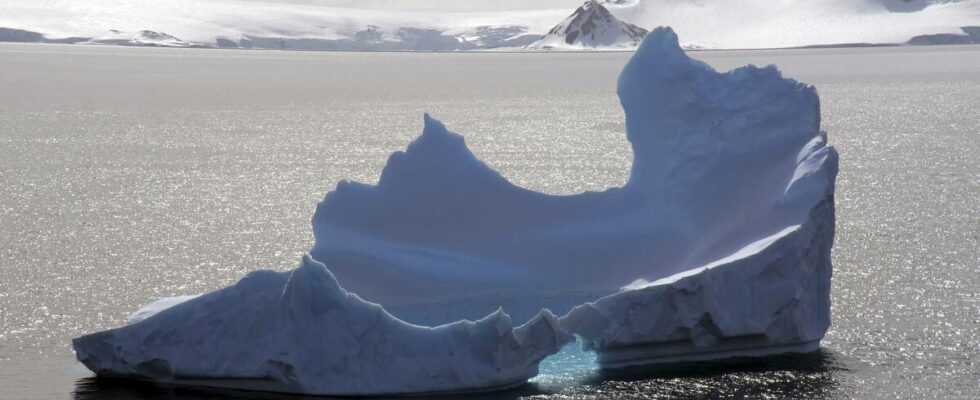Scientists had not yet “never seen anything like it in Antarctica”. On Friday, several weather stations recorded record temperatures there. The Concordia station, located more than 3,000 meters above sea level, thus displayed 12.2°C, or about 40°C more than normal.
Same observation for the Vostok station, known for having listed the lowest temperature ever recorded on Earth (-89.2°C on July 21, 1983). There, the average temperature is about minus -53°C in March. But on Friday, the temperature “jumped” to -17.7°C.
Extraordinary anomalies in #Antarctica lead to historic records today:
-Vostok 3489m -17.7C, monthly record beaten by nearly 15C!
-Concordia 3234m -12.2C,highest Temp. on records and about 40C above average!
-Dome C II 3250m -10.1C
-D-47 1560m -3.3C
-Terra Nova Base 74S +7.0C pic.twitter.com/w6Ry4Dy4wz— Extreme Temperatures Around The World (@extremetemps) March 18, 2022
Never has such a high mark been raised in Vostok over the period since the beginning of the keeping of the climatic registers sixty-five years ago, the previous absolute record being beaten by around 15°C. Some simulations suggest that temperatures may even have climbed to 50°C above normal in parts of the continent. As for Terra Nova Bay, between Cape Washington and the Drygalski Ice Tongue, the temperature reading was well above freezing, at 7°C.
“It is definitely an unusual event”
Abnormal peaks, reported on Friday by the Washington Post, that surprised officials at the National Snow and Ice Data Center in Boulder, Colorado. The latter were already paying particular attention to the temperatures recorded in the Arctic, where it is 50°C higher than average and where the areas around the North Pole were approaching or reaching the melting point (the temperature from which the ice melts). What is really unusual for mid-March: “These are opposite seasons. You don’t see North and South [les pôles, ndlr] melt at the same timeinsisted Friday evening the scientist of the ice center Walt Meier with the American agency Associated Press. This is definitely an unusual occurrence.”
These abnormally high temperatures have led to episodes of ice melt in the region. A rather unusual phenomenon in this part of Antarctica, which does not often experience many episodes of this kind. Not enough to affect the stability of glaciers in this region, however, according to experts. For the latter, it is still too early to link this event to climate change. Specialists believe that these abnormal temperatures in Antarctica are for the moment only a random meteorological event. If it happens again, it could still be cause for concern.
The average temperature across Antarctica on Friday was about 4.8°C higher than baseline averages between 1979 and 2000, according to the University of Maine’s Climate Reanalyzer site, which relies on models from the United States Oceanic and Atmospheric Observation Agency. At the same time, the Arctic recorded temperatures on average 3.3°C warmer than the averages recorded over the period 1979-2000. If we compare with the world average, this is only 0.6°C above the averages recorded over the same period 1979-2000.
